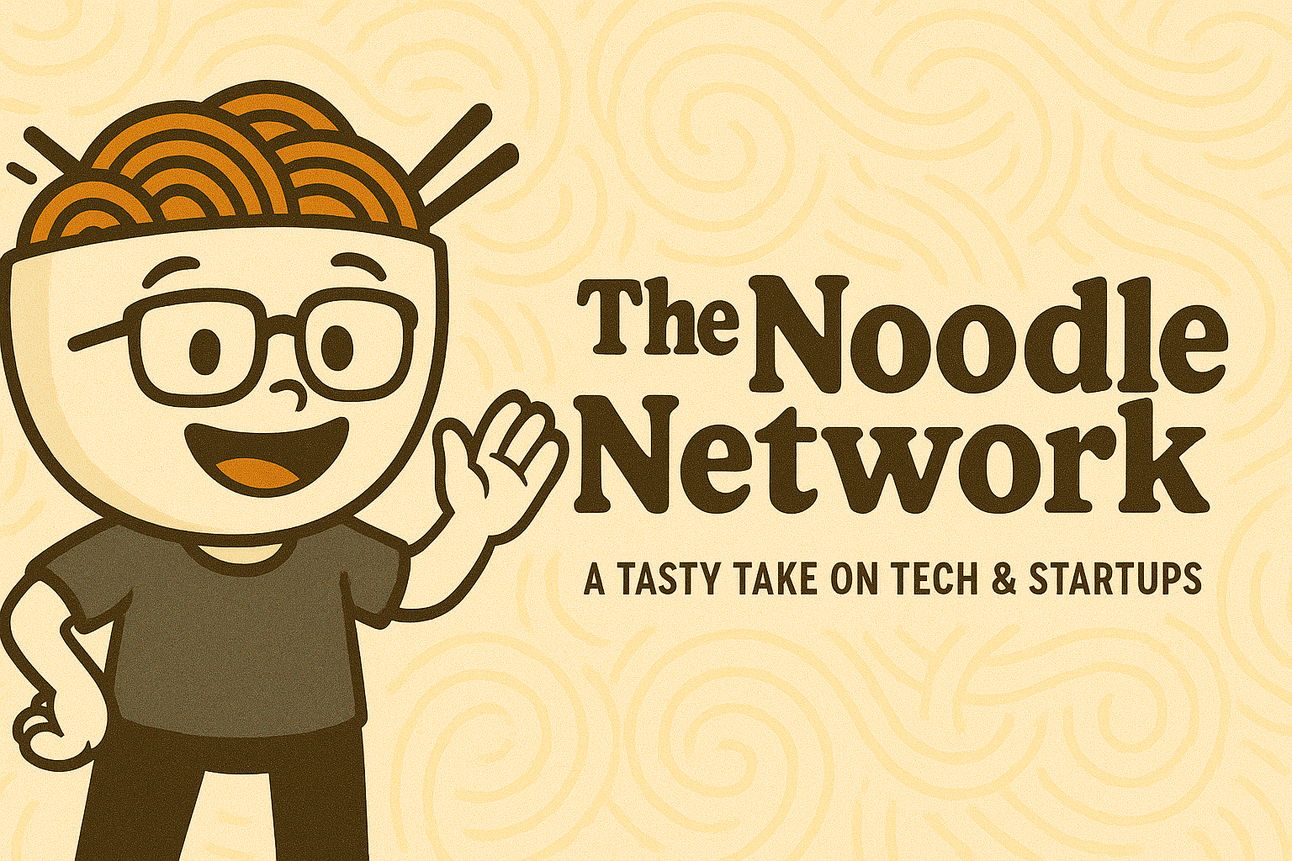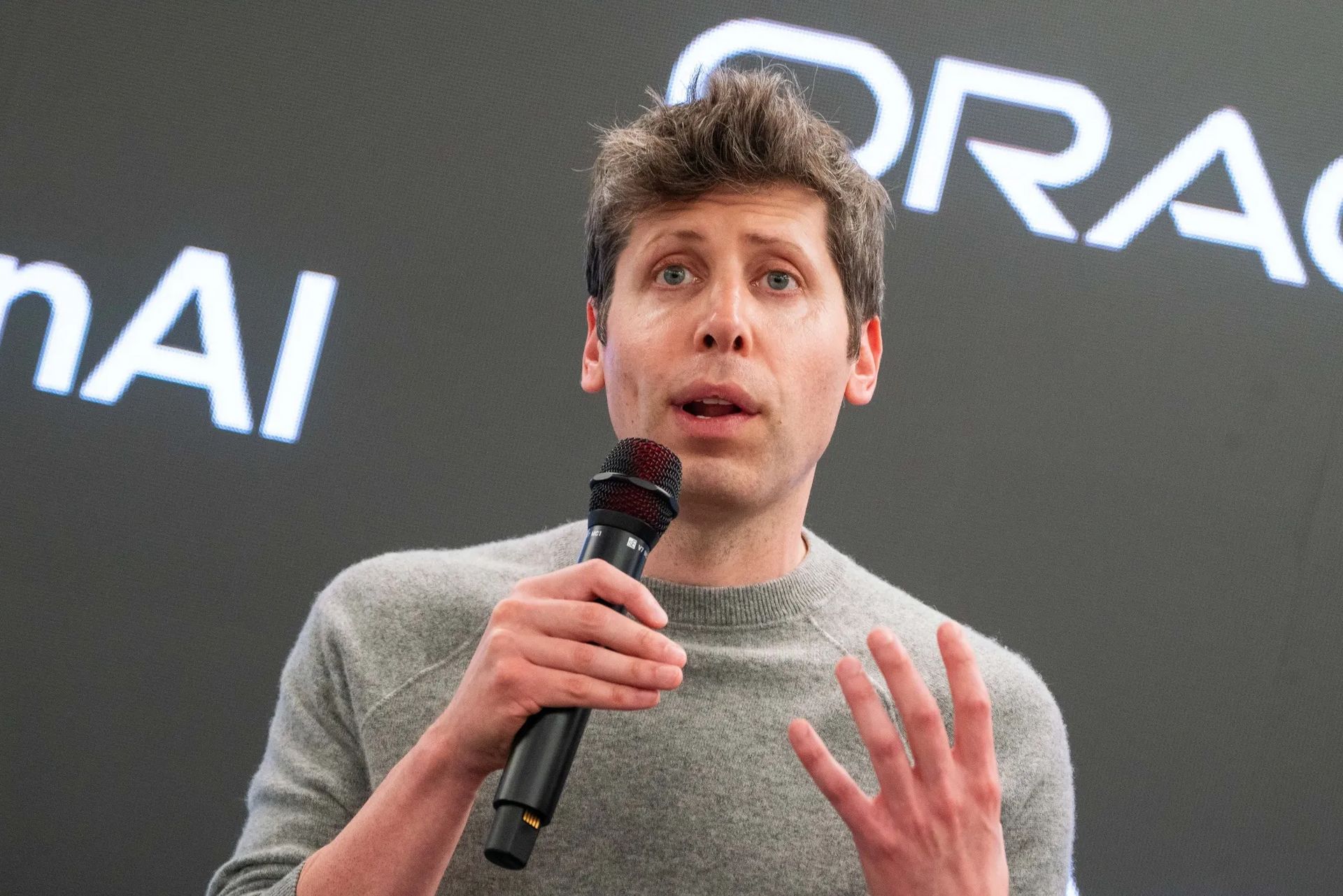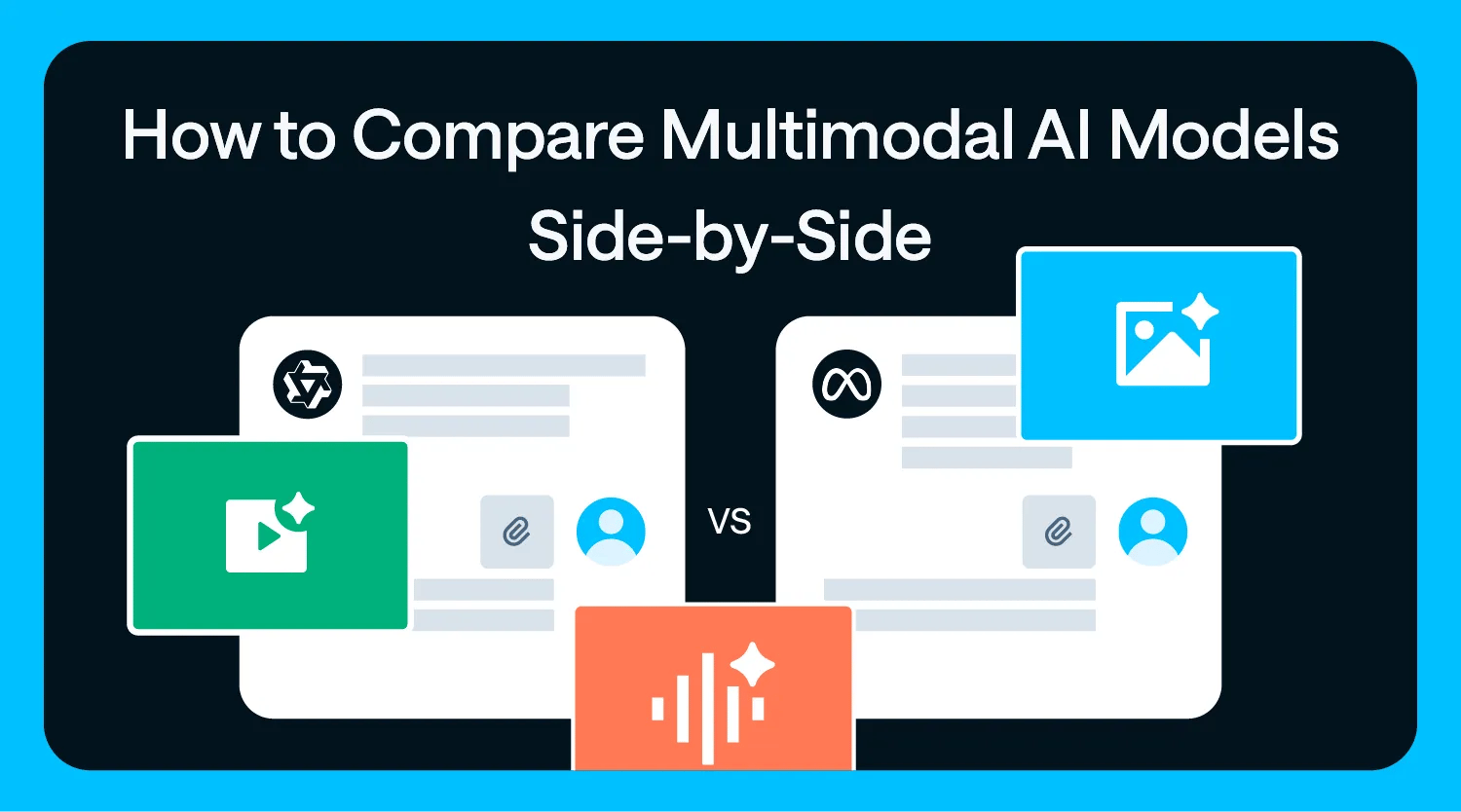- The Noodle Network
- Posts
- 🍜 Bank of England warns you of AI..
🍜 Bank of England warns you of AI..
The Bank of England just issued a friendly reminder that the AI bubble might...
Welcome, Noodle Networkers.
Things are getting weird in the AI world again. OpenAI, Nvidia, and AMD are playing hot potato with chip deals while everyone else is trying to figure out who actually benefits. It’s starting to feel like Silicon Valley’s version of a group project. The Bank of England just issued a friendly reminder that the AI bubble might pop. If you start hearing words like “correction” or “volatility” on CNBC, just know your portfolio is about to learn humility. And apparently, one in five teens have had an AI relationship or know someone who has. Love is in the air, and so are hallucinated compliments.
Are we on the brink of a digital love triangle, a market crash, or both? Let’s dive in.
In today’s AI digest:
Circular AI deals between OpenAI, Nvidia, and AMD raise red flags 🤝
Bank of England warns of an AI bubble “sharp correction” ⚠️
1 in 5 teens say they’ve had an AI relationship 💔
Read time: 5 minutes
What are you doing for work? |
WHAT’S HAPPENING TODAY
AI deals
(source: Bloomberg)
🤝 The Digest: OpenAI, Nvidia, and AMD are getting a little too cozy. Their new web of partnerships, investments, and shared profits has analysts wondering if the AI industry is starting to look more like a financial merry-go-round than a tech revolution.
Key Details:
🌀 The Circle of (Corporate) Life
Nvidia invests in OpenAI. OpenAI signs billion-dollar chip deals with AMD. AMD gives OpenAI equity options. And everyone’s stock goes up. It’s like “you scratch my back, I 10x your valuation.”
💾 Vendor or Investor? Why Not Both
These deals blur the line between supplier and shareholder. OpenAI isn’t just buying chips—it’s buying pieces of the companies that make them. Somewhere, an accountant just whispered “dot-com déjà vu.”
💡 Valuations on Steroids
Because everyone’s investing in everyone else, it’s getting harder to tell what’s real demand and what’s just financial echo. It’s like clapping for yourself in a mirror and calling it applause.
⚠️ Regulators Are Watching
Nvidia’s deep ties to OpenAI could trigger antitrust alarms if it starts favoring its BFF over other AI players. The FTC is probably hovering over a big red “observe closely” button.
Why It Matters: Circular deals might make for great headlines but they also make fragile foundations. If one part of this triangle trips, the whole thing wobbles. Right now, it feels like Silicon Valley’s version of a love triangle—lots of money, mixed emotions, and someone’s definitely going to get burned.
Sponsored by CashApp
Set it, forget it, and save for your goals
Make saving automatic with Cash App. Round up your spare change from every purchase, earn up to 4% interest, and transfer money between your balances whenever you want—all with no hidden fees or minimum balance requirements.*
Saving is easier with Cash App
Use Cash App Card, the debit card for everyday spending, to turn your spare change into savings with Round Ups
Grow your money faster with up to 4% interest*
Avoid monthly and hidden fees
Make unlimited transfers between your Cash and savings balances
Keep your money safe with 24/7 fraud monitoring and built-in security features
Cash App is a financial services platform, not a bank. Banking services provided by Cash App's bank partner(s). Prepaid debit cards issued by Sutton Bank, Member FDIC. See Terms and Conditions. Round Ups and savings provided by Cash App. *To earn the highest interest rate on your Cash App savings balance, you need to (a) have a Cash App Card or sponsor one or more sponsored accounts and receive at least $300 in paycheck direct deposits each month; or (b) have a sponsored account with sponsor approval to earn interest. Exceptions may apply. Cash App will pass through a portion of the interest paid on your savings balance held in an account for the benefit of Cash App customers at Wells Fargo Bank, N.A., Member FDIC. Savings yield rate is subject to change.
AI in banking
(source: CNBC)
⚠️ The Digest: The Bank of England just warned that the world might be partying a little too hard on the AI hype train. They say markets could face a “sharp correction” if investors suddenly realize that not every chatbot is the next iPhone. In short, the BoE thinks the AI bubble might be inflating faster than an Nvidia earnings chart.
Key Details:
📈 Valuations Are Sky-High
The BoE says tech stocks, especially those riding the AI wave, are looking suspiciously like the dot-com boom 2.0. Translation: everyone’s acting like they discovered the next Google, but most of these companies can barely spell profit.
🔗 Too Much Power in Too Few Hands
A handful of mega tech firms are driving almost all the market’s gains. If one of them sneezes, the entire index catches a cold. It’s less “diversified portfolio” and more “group project with one kid doing all the work.”
🧠 AI-Driven Trading Adds Chaos
The BoE warns that if all the big funds use similar AI models, they might start buying and selling in sync. Imagine thousands of robots panic-selling at once—it’s like a financial mosh pit with zero rhythm.
💥 Fed Pressure Could Make It Worse
The BoE also hinted that if confidence in the U.S. Federal Reserve wobbles, it could trigger a global chain reaction. Because nothing says stability like investors yelling “keep calm” while hitting the sell button.
Why It Matters: When a central bank starts comparing AI investing to bubble behavior, it might be time to check your portfolio before it checks you. The BoE isn’t saying to quit the party, just to make sure you know where the exits are before the DJ plays “Bye Bye Buy.”
AI relationship
1 in 5 teens say they’ve had an AI relationship 💔
(source: NPR)
💔 The Digest: A new survey found that one in five teens say they’ve had a romantic or emotional relationship with AI. Yep, Gen Z is officially dating the algorithm. Forget passing notes in class — now it’s flirty chats with a chatbot that never leaves you on read.
Key Details:
📊 The Rise of Digital Dating
According to the study, around 20 percent of teens admit to having romantic or emotional connections with AI companions. The other 80 percent are lying or just jealous of the bots’ communication skills.
💬 Bots That Actually Text Back
AI partners have one major advantage over humans: instant replies. No waiting, no ghosting, and no “sorry, fell asleep” messages. Just endless validation and perfectly timed emojis.
🤖 Perfect on Paper, Literally
Teens say AI partners are supportive, kind, and always available. In other words, the complete opposite of every teenage situationship in history. The only downside is when your “boyfriend” needs a software update.
⚠️ Love Without the Lessons
Experts worry that relying on bots for romance could mess with emotional development. You can’t really learn empathy from an app that thinks heartbreak is a server error.
Why It Matters: This might be the first generation to get dumped by a chatbot that writes breakup haikus. As the line between code and connection blurs, maybe the next big question for teens won’t be “Do you like me?” but “Are you even real?”
THE NOODLE LAB
AI Hacks & How-Tos
The Digest: GAICo (Generative AI Comparator) is an open-source Python tool that helps you compare the outputs of different AI models. It works with text, structured data, and multimedia, giving you clear metrics and visual results for analysis.
⚙️ How-to:
Install GAICo
pip install gaicoPrepare Your Data
Gather your reference outputs and the results from each AI model you want to compare.Set Up an Experiment
Use theExperimentclass to define which models you’re comparing and which metrics you’d like to use.Run Comparisons
Execute the experiment to calculate metrics like BLEU, SSIM, or accuracy. GAICo automatically creates tables and charts showing model performance.Review Results
Analyze the comparison report to see where each model performs best. Inspect specific cases to understand differences and potential improvements.
Explore More: You can find setup examples, tutorials, and benchmark studies in GAICo’s documentation and research paper on arXiv.
Trending AI Tools
Stratup.ai – Generates startup ideas from quick prompts.
AutoGen Studio – No-code builder for AI agent workflows.
TAI Scan Tool – Checks AI systems for compliance risks.
GAICo – Compares outputs across AI models easily.
Bud Runtime – Runs generative AI on CPUs, not GPUs.
What'd you think of today's email? |






